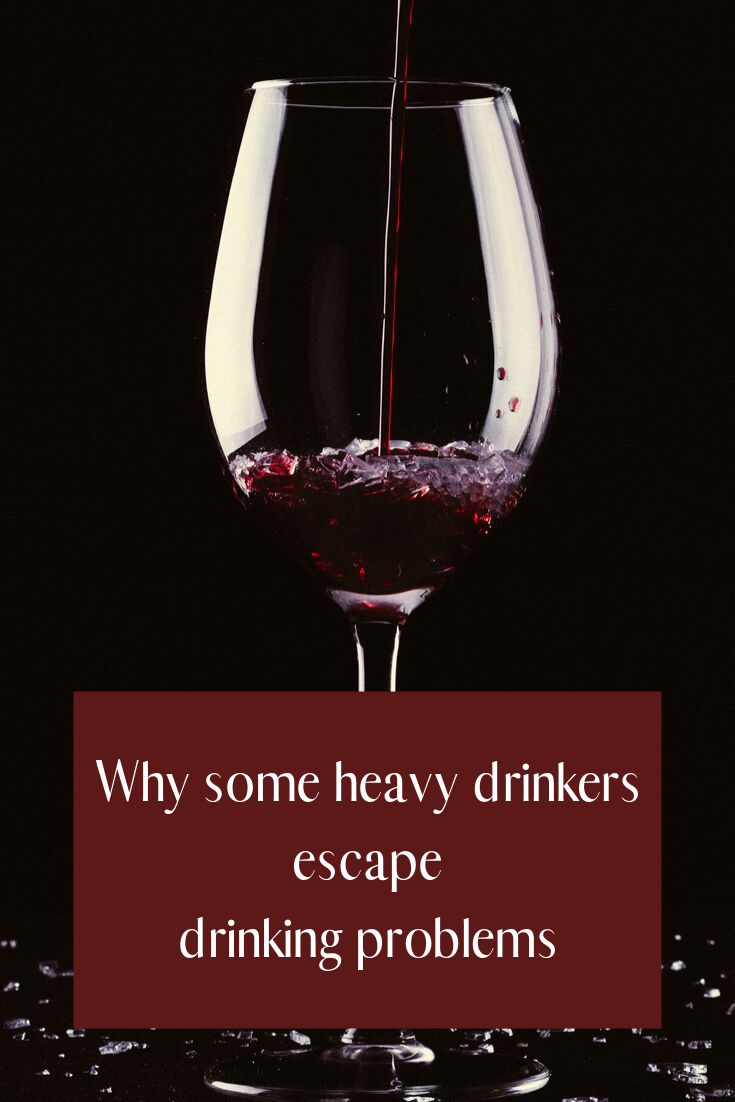You may be surprised to hear that the diagnostic criteria for alcohol use disorder (the official name for alcoholism), or AUD, do not actually include a person’s drinking level.
Of course, the other criteria are likely to correlate with drinking heavily (developing symptoms of tolerance and withdrawal; thinking about alcohol all the time; letting drinking interfere with responsibilities). But that means in theory, there could be people who drink heavily without having an alcohol use disorder.
So are they really out there, and if so, what makes those lucky people able to drink heavily without developing more serious problems?
A new study of this so-called “Addiction Resistance” has shed some light on why some people who do drink heavily don’t develop the disorder, which at a high level is characterized by drinking in a way that substantially interferes with living a happy, healthy life.
A couple of caveats:
The study was only conducted on young, healthy people, so its results may not apply to older heavy drinkers.
It was survey-based, so there could have been lies or inadvertent misreporting of drinking levels
Now, onto the findings!
You might guess that addiction resistance is down to genetic factors, and that’s likely true. Those in the study with no family members who had a substance use disorders had a higher degree of addiction resistance (ability to drink heavily without developing a disorder). That suggests that there are genetic components that may make some people more susceptible to AUD than others at the same drinking level.
But there’s more to it! Here are a few of the things that help someone resist AUD despite drinking heavily:
Greater emotional stability
Norm adherence (e.g., you like to follow the social/societal rules)
Risk avoidance
Since many of the criteria for AUD revolve around continuing to drink despite obvious problems it’s causing, these attributes make sense. If you tend to avoid risks, you’ll avoid doing risky things like driving to an event where you know you’re going to drink. If you tend to adhere to social norms, you’ll avoid going to work drunk or hungover, which avoids allowing drinking to interfere with your career. If you’re more emotionally stable, you’re less likely to drink in risky ways when something bad happens.
At the same time, these may indicate things to work on if you’re on the other side of the equation. Even for a heavy drinker, there may ways to make your drinking less risky. You may be able to work on ensuring your drinking doesn’t interfere as much with your life.
But we believe most important of all is working on emotional stability. A lack of it can make it very difficult to cut back or quit, because drinking is a common way to escape negative emotions. There are a variety of ways to build greater emotional stability, and a variety of ways to deal with negative emotions more productively.
That’s why we have two whole courses in our Library dedicated to Staying Calm and Getting Happier. We know how important it is to successfully cutting back or quitting drinking, both from research and personal experience.
If you’re cutting back or quitting drinking, we’d love to help. Drinker’s Helper is an app that provides motivational exercises, drink tracking and insights into why you drink, and a support group of your peers to help you make needed changes. Try it free for a week before joining!



